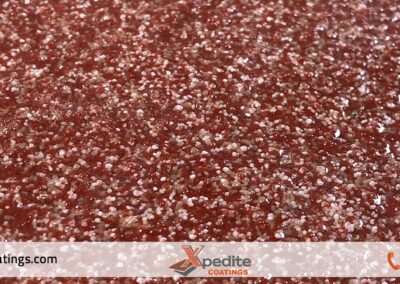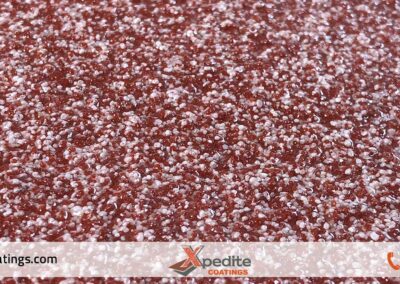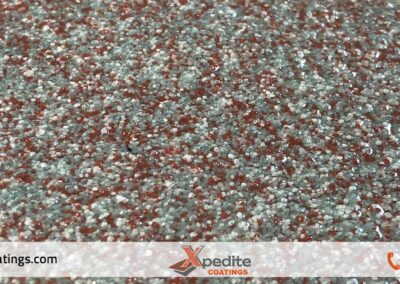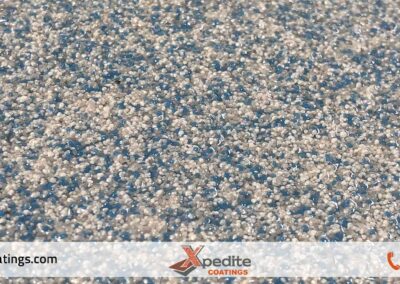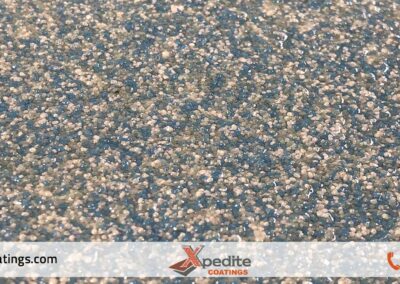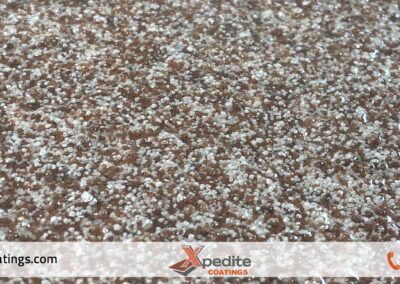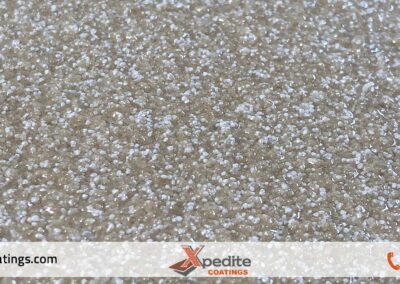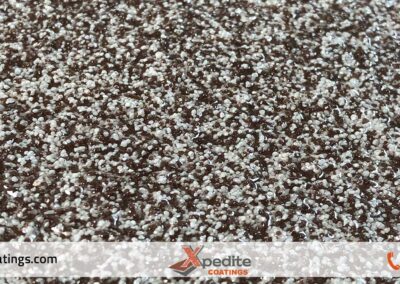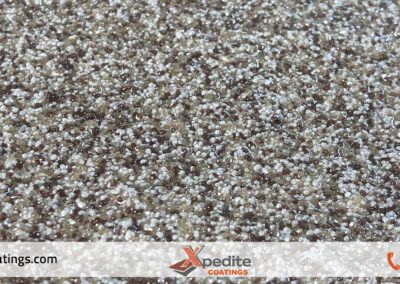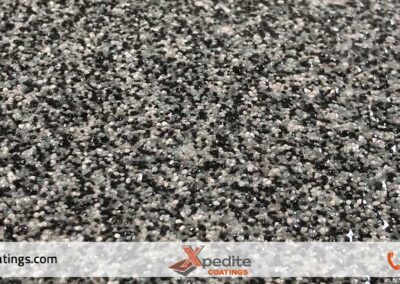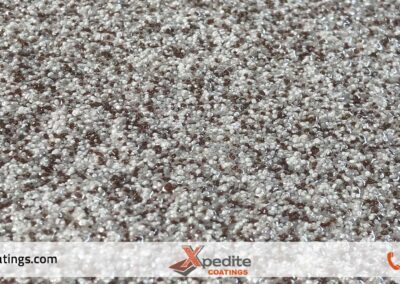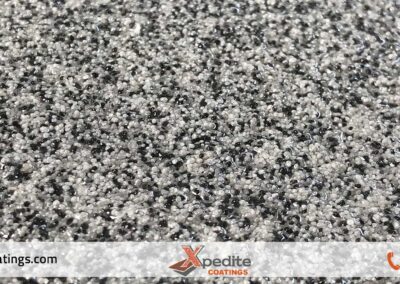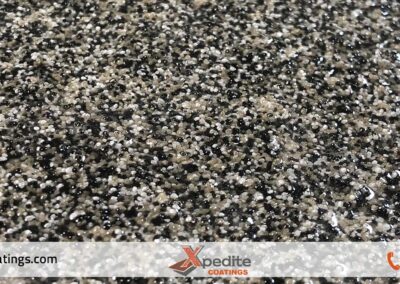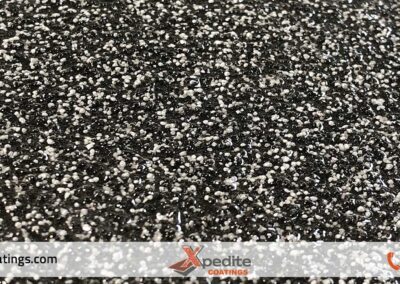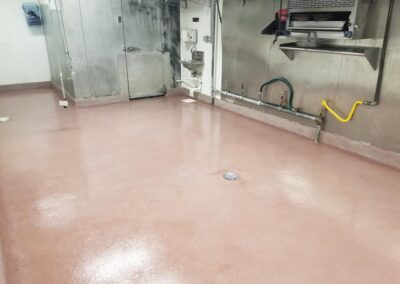Elevate Your Commercial Kitchen Floors with Epoxy
Secure floors for safer kitchens
DURABLE
DEPENDABLE
DYNAMIC
See how epoxy kitchen commercial floors can revolutionize your space
Epoxy Your Way to Perfection
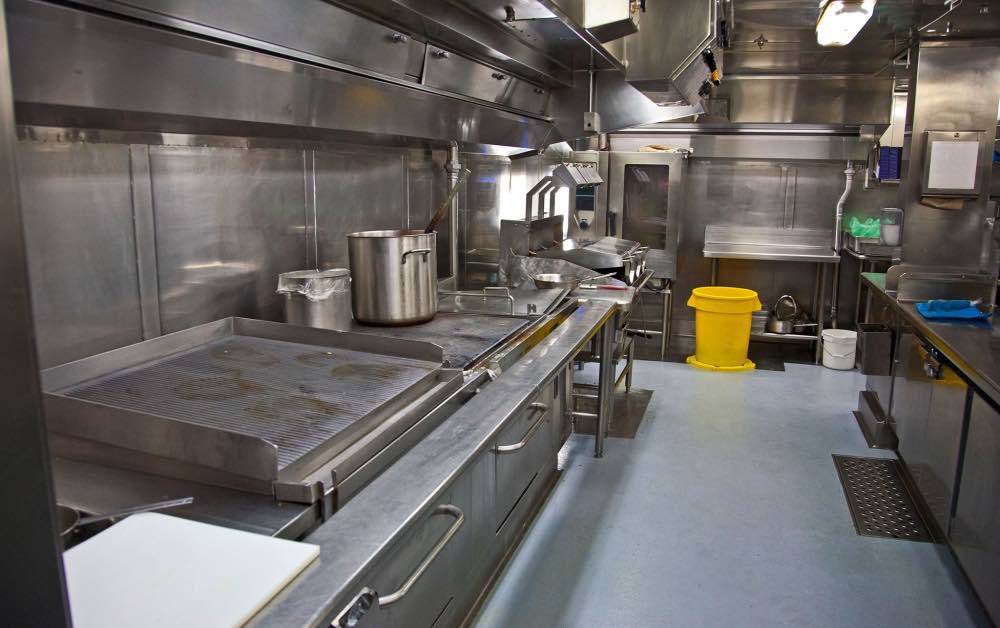
Imagine walking into your commercial kitchen and being greeted by a floor that sparkles like a diamond, reflecting the gleam of your stainless steel appliances.
With epoxy flooring, that can become a reality.
It is easy to clean and incredibly durable, making it the perfect choice for busy kitchen spaces that see a lot of foot traffic.
Our epoxy commercial kitchen floors are available in various colors and finishes, allowing you to create a unique look that matches your brand’s aesthetic environment.
Plus, its slip-resistant surface provides a safer environment for your staff, reducing the risk of accidents and injuries.
So if you’re looking for a cost-effective way to give your kitchen a makeover that will impress your customers and staff, look no further than epoxy flooring.
It’s the ultimate solution for any commercial kitchen that wants to revolutionize its space.
See our innovative commercial
kitchen floor projects
The Benefits of Having Epoxy Commercial Kitchen Floors
A high-quality commercial kitchen floor is a crucial investment that can make or break a restaurant’s success. Take, for instance, a restaurant that invested in a sleek and durable epoxy commercial kitchen floor.
The floor’s smooth and glossy surface added to the restaurant’s overall ambiance and helped create a safer work environment for staff.
The slip-resistant and easy-to-clean surface helped maintain the highest hygiene standards, resulting in high-quality cuisine and positive reviews.
Watch your restaurant’s success soar with epoxy commercial kitchen floors.
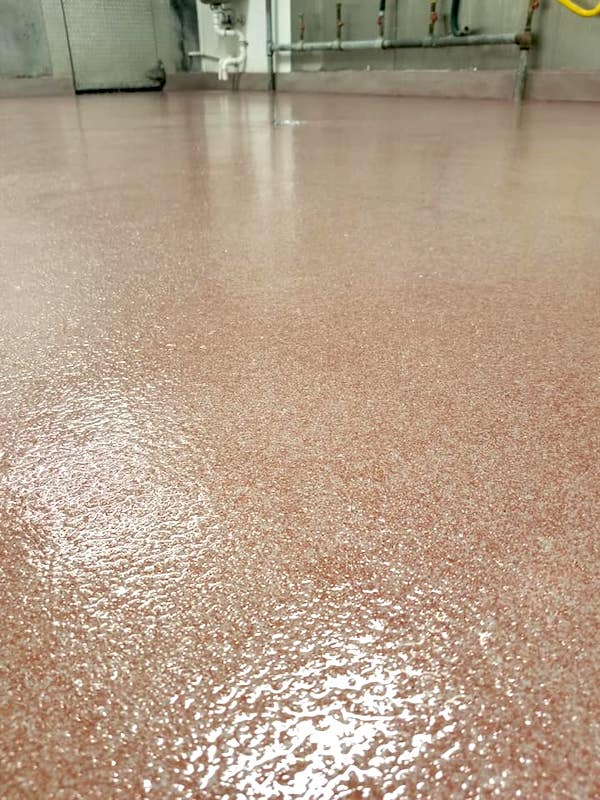
Epoxy Commercial Kitchen Floors FAQs
Is an epoxy floor good for a commercial kitchen?
Yes, an epoxy floor is an excellent choice for a commercial kitchen.
Epoxy is a durable and easy-to-clean material that can withstand heavy foot traffic, spills, and the weight of heavy kitchen equipment. It is also slip-resistant, which helps to create a safer work environment for staff.
Epoxy floors are also customizable, allowing various colors and designs that match any restaurant’s aesthetic.
Epoxy floors are seamless, which helps prevent bacteria and other contaminants from accumulating in grout lines, making them a hygienic choice for a commercial kitchen.
What is the best floor epoxy coating for a commercial kitchen?
We can use several epoxy coatings for commercial kitchen floors, but the best one depends on the kitchen’s specific needs.
Here are some common types of epoxy coatings:
- Solvent-based epoxy coatings: Solvent-based coatings are highly durable and resistant to chemical spills and abrasions. They can resist water and withstand high moisture levels. However, these coatings release high VOC levels (volatile organic compounds) during application and require longer curing.
- Water-based epoxy coatings: Water-based coatings are less toxic than solvent-based coatings and emit fewer VOCs. They are also easy to install and have a short curing time. However, they are less durable than solvent-based coatings and more susceptible to damage from chemical spills and abrasions.
- 100% solid epoxy coatings: 100% solid coatings are the most durable and long-lasting of all epoxy coatings. They also resist chemical spills, abrasions, and heavy foot traffic. However, they are more expensive than other epoxy coatings and require more prep work before application.
A 100% solid epoxy coating is the best choice for a commercial kitchen, as it provides the highest durability and resistance to chemical spills and abrasions. However, a water-based epoxy coating may be a better option if VOC emissions are a concern.
How long do commercial epoxy floors last?
The lifespan of a commercial epoxy floor depends on several factors, such as the quality of the material, the amount of foot traffic and equipment used, and the level of maintenance.
However, with proper installation and maintenance, a high-quality commercial epoxy floor can last up to 10-20 years or even longer.
Regular cleaning and maintenance of the epoxy floor, such as daily sweeping and mopping, can extend its lifespan.
Avoid harsh chemicals or abrasive cleaners, which can damage the epoxy coating.
Placing mats in high-traffic areas and using furniture glides under heavy equipment can help prevent scratches and other damage to the epoxy floor.
What are the pros and cons of epoxy commercial kitchen floors?
Epoxy commercial kitchen floors have several pros and cons that you should consider before installation.
Pros:
- Durability: Epoxy floors are incredibly durable and can withstand heavy foot traffic, equipment use, and spills without chipping or cracking.
- Easy maintenance: Epoxy floors are easy to clean and maintain, requiring only regular sweeping and mopping to keep them looking new.
- Slip-resistant: We can make epoxy floors slip-resistant, which makes them safer for kitchen staff to work on.
- Customizable: Epoxy floors come in a range of colors and designs, making them highly customizable to match the aesthetic of any restaurant.
Cons:
- Cost: Epoxy floors can be more expensive than other flooring materials, such as vinyl or tile.
- Installation: Epoxy flooring is a specialized process requiring professional expertise and can be time-consuming.
- Curing time: Epoxy floors require several days before being used, which can inconvenience some restaurants.
- Cold temperature sensitivity: Epoxy floors can become brittle and crack in cold temperatures, so they may not be suitable for restaurants in colder climates.
Epoxy commercial kitchen floors are highly durable, easy to maintain, and customizable, making them an excellent restaurant choice.
However, consider the installation cost, curing time, and temperature sensitivity before choosing this flooring material.
What should you not put on a epoxy commercial kitchen floor?
While epoxy commercial kitchen floors are highly durable and resistant to most chemicals and spills, avoid some substances to prevent damage or discoloration.
Here are some things you should not put on an epoxy commercial kitchen floor:
- Acidic substances: Avoid spilling acidic substances such as vinegar, citrus juice, or tomato sauce on the epoxy floor, which can etch the surface and cause discoloration.
- Harsh chemicals: Avoid using harsh chemicals, such as bleach, ammonia, or abrasive cleaners, as they can damage the epoxy coating and strip away its protective layer.
- Hot objects: Avoid placing hot objects, such as pots, pans, or hotplates, directly on the epoxy floor. While epoxy is heat-resistant, prolonged exposure to high heat can cause the surface to soften or warp.
- Heavy equipment: Avoid dragging heavy equipment on the epoxy floor such as commercial ovens or refrigerators. Heavy equipment can scratch or dent the surface, causing damage that is difficult to repair.
Avoiding these substances and taking precautions to protect the epoxy floor can help ensure its long-term durability and aesthetic appeal.
Regular cleaning and maintenance can also help extend the lifespan of an epoxy commercial kitchen floor.
How thick is commercial kitchen epoxy flooring?
The thickness of commercial kitchen epoxy flooring can vary depending on the space’s specific needs and the type of epoxy used.
We apply commercial kitchen epoxy flooring in multiple layers to achieve a thickness of around 2-3 millimeters (0.08-0.12 inches).
This thickness is sufficient for durability, slip resistance, and protection against spills, stains, and heavy foot traffic commonly found in commercial kitchen environments.
However, if the kitchen is large or experiences heavy use, a thicker epoxy coating may be required to withstand the additional wear and tear.

